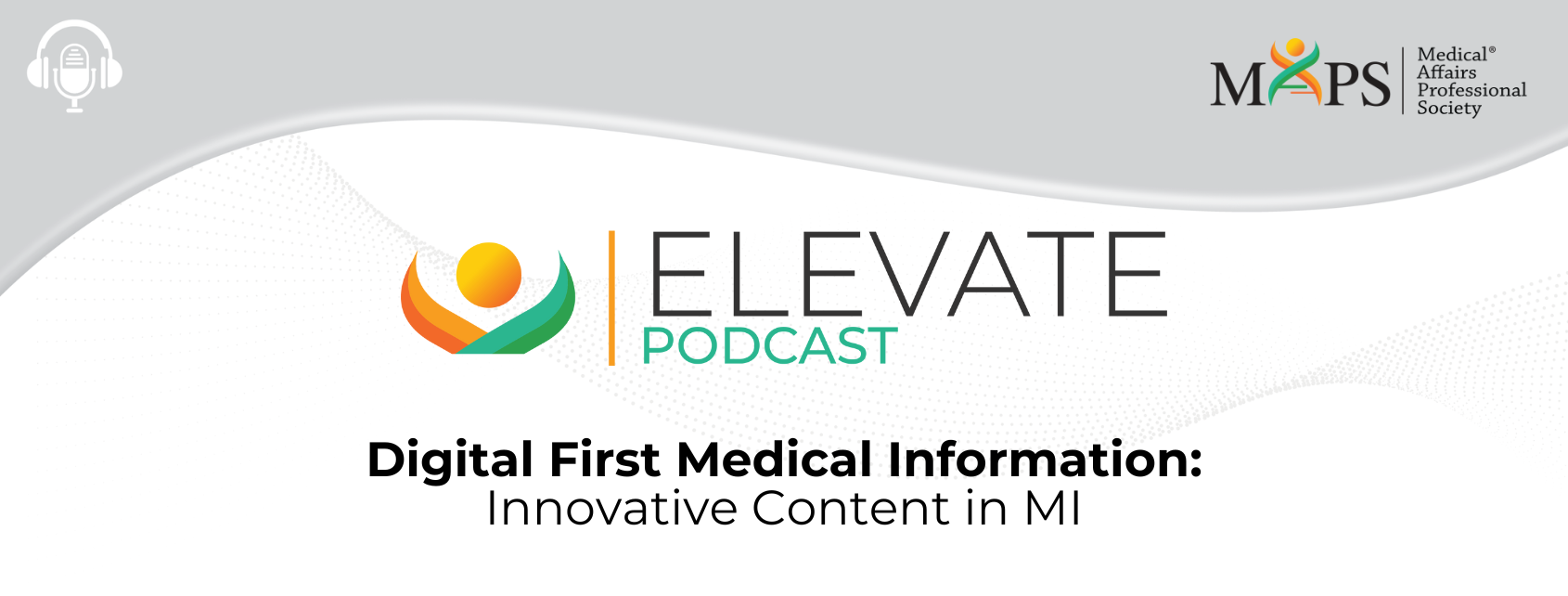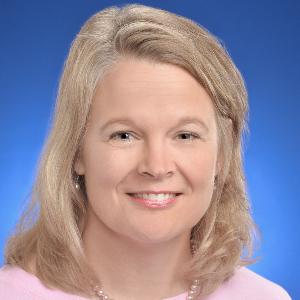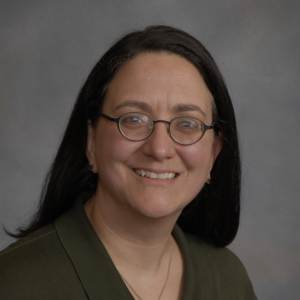Digital First Medical Information:
Innovative Content in MI
Speaker: Jennifer Riggins, PharmD
Speaker: Evelyn R. Hermes DeSantis, PharmD
Speaker: Jung Hyun Lee
Today’s podcast objectives are for listeners to better understand:
- What innovative content is in the context of Medical Information
- Expectations of HCPs in accessing innovative content
- And key learnings in the transition toward the use of more innovative content.
Following is an automated transcription provided by otter.ai. Please excuse inaccuracies.
Jennifer Riggins 00:00
Welcome to the Medical Affairs Professional Society’s Digital and Medical Information Focus Area Working Group podcast series, Digital First Medical Information, How Digital is Transforming Medical Information. In our podcast, we speak with experts in the field of Medical Information, and discuss how the digital transformation of Medical Information is opening opportunities for better and more personalized customer experience. Today’s episode is on innovative content in Medical Information. I’m Jennifer Riggins, I’ll be the moderator for today’s podcast. I currently serve as a member of the Digital Focus Area Working Group. I’ve been working in pharma for almost 30 years with a focus on Medical Information scientific communications and medical digital. And I currently serve as the Technology and Partnerships Strategist at phactMI a not for profit consortium of Medical Information leaders. I’m joined by Evelyn Hermes DeSantis, who is Professor Emeritus at Rutgers University, and also serves as the Director of Research and Publication at phactMI. She’s also the lead for the Medical Information Focus Area Working Group.
Evelyn Hermes DeSantis 01:09
The views expressed in this recording are those of the individuals and do not necessarily reflect on the opinions of MAPS, or the companies with which they’re affiliated. This presentation is for informational purposes only, and is not intended as regulatory, or legal advice.
Jennifer Riggins 01:27
We encourage you to learn more about digital transformation of Medical Information. There are many enduring educational materials that are available through MAPS, including podcast episodes, elevate articles, webinars, and Annual Meeting workshops. They’ve all been recorded and are housed on the MAPS website. Today’s podcasts objectives are for listeners to better understand what innovative content is in the context of Medical Information, expectations of HCPs and accessing innovative content, key learnings in the transition towards the use of more innovative content. So today we’re going to be speaking with Dr. Jung Hyun Lee Senior Director of Global Medical Information Operations Excellence at AstraZeneca. So welcome, Jung. Thanks so much for joining us today. So, to start, how about you give us a brief background of your career and the responsibilities of leading the DMI operations excellence function at AZ?
Jung Hyun Lee 02:28
Well, thanks, Jen. Thanks so much for having me. I’ll start by saying I’m a pharmacist by background, I have a PharmD and I started my career as a clinical pharmacist in an HMO in New York City. But I transitioned to pharma over 22 years ago and have mainly been at AstraZeneca. I at AstraZeneca. I’ve been in various roles. I started in Field Medical as an MSL, but then came in house and worked in various departments, including headquarters strategy, Medical Affairs, as well as Medical Information for both global and US organization. So currently, I lead various initiatives that not only ensure that our Mi function operates in the most efficient and effective way, but I’m also currently leading content and channel initiatives that impact our broader global Medical Affairs team so that we can be fit for the future.
Jennifer Riggins 03:29
Awesome. Well, I’m really excited to have you I think you have a lot of great experience to share with our audience. And since this podcast is all about innovative content, how about we start with having you define what innovative content is in the context of Medical Information? And what really started you on this journey?
Jung Hyun Lee 03:48
Yeah, so I think what innovative content means to me in the context of Medical Information, is that we need to think beyond traditional ways of working, and thinking about how are ways that we can develop content that will be most meaningful, easy to understand and impactful for physicians for HCPs. And there’s a need to evolve because of two important factors. Our current environment including, you know, us in our, our general lives, our social environments, we are all getting our information through digital formats, and that includes HCPs, they get their information in digital formats or digital channels, to online websites as well as social. In addition, our audience our health care professionals want information that’s in a bite size, easy to understand manner, and therefore we need to go beyond our traditional ways of working and be able to provide that to them in innovative ways.
Evelyn Hermes DeSantis 04:58
Hey, Jung, it is so good to speak with you And it’s really interesting to see what some of those innovative content ways are. Effective my and as part of MAPS, we all have been talking about multi channel and omni channel strategy. How does innovative content itself and the whole associated process help progress this multi channel omni channel strategy within companies?
Jung Hyun Lee 05:28
Yeah, it’s a great question. And I consider a focus on innovative content goes hand in hand with the focus on omni channel strategies. As I mentioned before, because our customers are utilizing various channels to get information, it’s imperative that we build content that’s fit for that the purpose of these various channels. The the concept of omni channel adds that layer of providing a very customer focused customer centric view, a personalized experience, when where and how they want it. So therefore, we need a process of developing content that needs to incorporate the ability to get data from that content. And we also need to think about the process to enable a seamless coordination of content across channels. And shifting to digital will help us get there by getting that meaningful data to inform us and be able to create content based on that data and analytics. And then secondly, we need to shift towards modular component based authoring and production so that we can be as efficient as possible to meet these multi channel needs.
Jennifer Riggins 06:47
So meeting those customer expectations, I know is critically important. Would you be willing to share with us your journey at AstraZeneca for developing innovative content in the hopes of meeting those high customer expectations?
Jung Hyun Lee 07:00
At AstraZeneca, we’ve always tried to improve upon the content we create. How can we try to be more concise are how can we get them to less pages? How can we show them information that will resonate and be useful for them? So we’re just not thinking about being innovative, but really thinking about how can we meet our HCPs needs and have them understand our information, and at AstraZeneca. In addition to Medical Information content, we’re also responsible for content for our field medical teams. And we’ve asked the same questions around the content we create for that audience as well. So our journey towards improving and transforming our approach to content was emphasized and expedited with our shift towards digital and the recognition of the importance of content for omni channel needs. So in the past, we piloted and tested various formats and designs. But we recognize that rather than just creating various content formats, we needed to send up set up some foundational methods of authoring content, so that we can efficiently reuse and leverage core content that’s already developed. So today, a majority of our teams are authoring component based content. And in the past several years, we’ve also learned a lot about how ACPs consume our content in our digital channels. We initially leveraged full form content PDFs, Word documents, PowerPoint slides for those digital channels. But we quickly recognize that we need to move towards HTML format, so that it’s web based, interactive, more user friendly for HCPs. And importantly, to get that data that we were talking about, when we move towards digital HTML format, we’re better able to get data about how our HCPs are consuming content. So that all these learnings have driven us to work towards efficiently creating HTML content on our own internal platforms, leveraging the core building blocks of component content that our teams are offering. So it’s that whole engine that we’re considering. And we’re really in the middle of this whole content transformation journey, as we speak. So there’s a lot of great excitement right now and about what’s to come for the future.
Evelyn Hermes DeSantis 09:32
Jung, that sounds like an amazing plan, and that you do have a pretty fairly well laid out journey. But as we all know, even the best laid plans have obstacles. So what have been some of the hurdles that you’ve had to overcome? And really, how have you approached the change management to achieve this?
Jung Hyun Lee 09:53
Yeah, that’s a great question. And I think it’s this was not this is not an easy journey. I know, I don’t think I’m speaking, I think I could speak for other companies that this kind of transformation is not easy. And I would say the major hurdle has been change management. Because as many of you know, in Medical Information, there have been set ways of working, quite traditional ways of working that are, you know, pretty standardized across the industry. So that’s been a huge hurdle to overcome. How do we evolve and change mindsets, to develop content in a different way to develop content for digital channels, to author content with the idea of reusing core content, to collaborate and leverage other parts of our organization to meet these content needs. So there’s been a change in both what we’re creating, and producing and how we’re producing it. So that can be quite overwhelming. So and in addition, it’s very challenging to balance a heavy business as usual load while transitioning to this new way of working so. So that’s, you know, why that it’s been such a challenge. But what’s exciting is that there’s a lot of energy in our departments. And the opportunity that Medical Information and medical have to be strategic partners is something that we envision as a great possibility and opportunity. And so there’s a lot of excitement around that.
Jennifer Riggins 11:35
So, we talked about what innovative content is, and how it fits in to the overall strategy, the importance of it for HCPs, and patients and then your journey at ese and the barriers you’ve had to overcome. What are your takeaway learning for audience members who may just be starting on this journey?
Jung Hyun Lee 11:54
Yes, we’ve had a lot of learnings along this journey. First, with the introduction of new technologies and platforms, new channels for content, there’s been a huge skill set lift and digital capability lift associated with that. Therefore, all this will take time, and it is a journey. And therefore, when our stakeholders oftentimes want quick results, we need to manage expectations, while showcasing quick wins whenever possible. Secondly, we can learn a lot from across our organizations, our commercial colleagues, or digital innovation teams, our IT teams, they have a wealth of knowledge and skills that are really crucial. And it’s critical that we collaborate at AZ we currently have some great collaborations underway, that are across the enterprise. And for other companies wanting to do similar work, the sooner you could establish these relationships and collaborations, the better. And then finally, and very importantly, leadership sponsorship, as well as the resourcing and funding that’s required is, of course, very critical, and that resourcing and funding is needed for not only, of course, the evaluation, testing and implementation of the new technologies, but secondly, any new capability, uplift support that is needed or even new roles. And then finally, an investment in change management, which is so important as part of this process, as discussed earlier.
Evelyn Hermes DeSantis 13:29
Jung, that is great. So one final question for you. I always love this question. It’s the get out your crystal ball. Where do you think innovative content is headed in Medical Information?
Jung Hyun Lee 13:42
Well, I think AI will play a big role in our content development process. And we’ll continue to focus on creating an engine that will enable us to create innovative digital content in a quick and agile and efficient way. As we know the digital world is here to stay. And there’s a wealth of information, complexity to the our science that we’re delivering. And so our customers need to be able to translate and navigate through that. So to continue to find a way to provide our customers and our healthcare professionals with information they need to make informed decisions for their patients. In the digital world. That’s really what it’s all about.
Jennifer Riggins 14:23
So I’m really excited to see how the use of this innovative content and Medical Information continues to unfold and if your predictions come to fruition. So, Jung, Evelyn and I would like to thank you for joining us today and being a part of the digital first Medical Information podcast series. I think this has been a really great discussion very informative and very thought provoking. So thank you so much. This has been Jennifer Riggins and Evelyn Hermes DeSantis. Bringing you the first episode of Digital First Medical Information a podcast production of the digital and Medical Information Focus Area Working Groups at The Medical Affairs Professional Society.
Evelyn Hermes DeSantis 15:02
Thank you very much, Jen and Jung. It’s been a pleasure. If you are a MAPS member, thank you for your support of MAPS. If you’re not yet a MAPS member, I want to encourage you to join so you can access additional resources, such as those mentioned in this podcast, visit the MAPS website today and MedicalAffairs.org/join-MAPS. This concludes the podcast.






